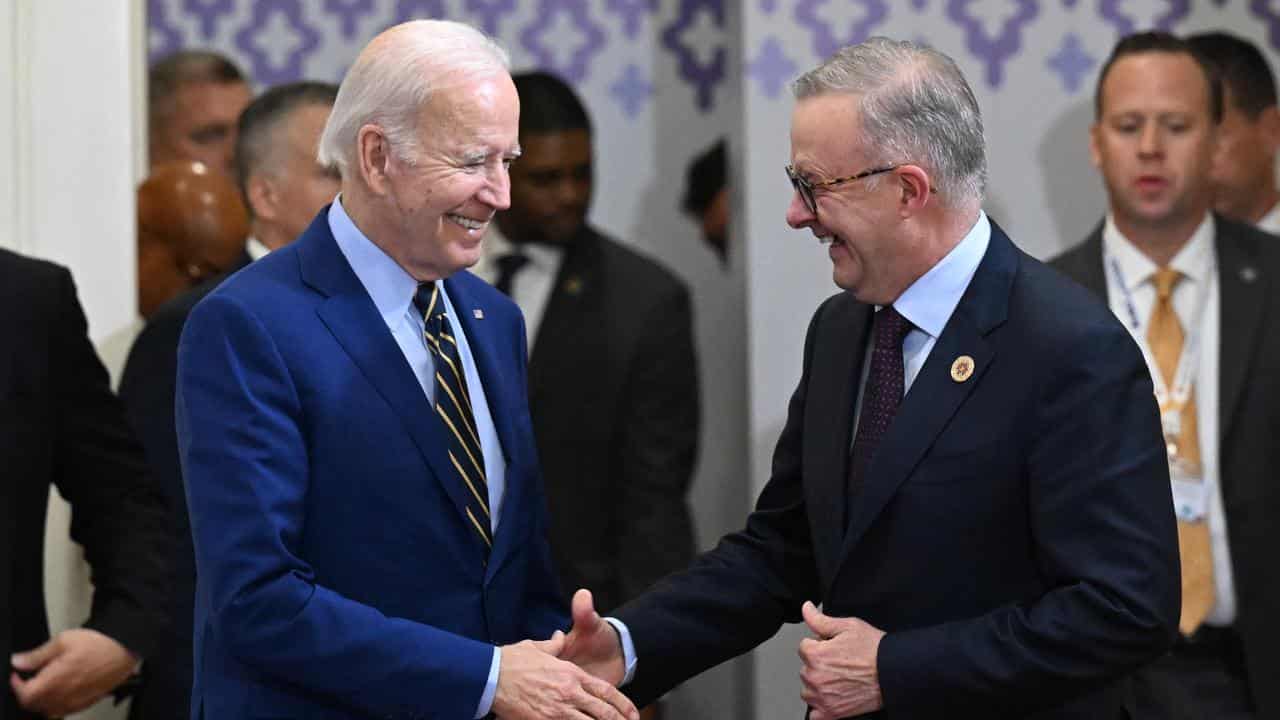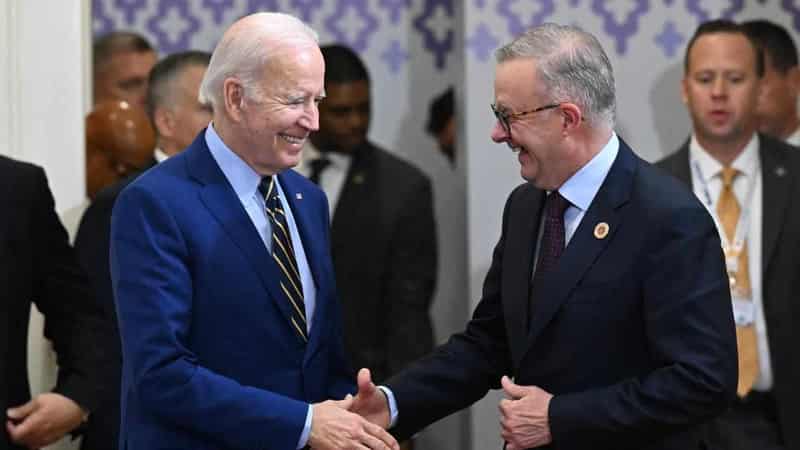
Anthony Albanese will push to make Australia's purchase of nuclear-powered submarines a "practical reality".
The prime minister landed in Maryland on Monday afternoon and was greeted on the tarmac by Australia's ambassador to the US Kevin Rudd, his wife Therese Rein and the US ambassador to Australia Caroline Kennedy.
Speaking after his arrival in Washington DC, Mr Albanese said he would meet with US legislators to discuss laws allowing the submarine technology transfer under the AUKUS agreement.
"Making sure that the AUKUS arrangements are put in place, and talking with Congress and Senate about the legislation that's required to turn this vision into a practical reality," he told reporters.
Working together in the Indo-Pacific, the clean energy transition, and critical minerals were also on the agenda.
"The United States relationship with Australia is our most important," Mr Albanese said.
Defence Minister Richard Marles said the government was receiving assurances from across the spectrum of American politics that AUKUS wasn't at risk.
"We do have a sense of confidence that when the time ultimately comes we will see the passage of the legislation which is required to enable this to move forward," he told Sky News.
Mr Rudd said the embassy had been engaged with US politicians to discuss the AUKUS security partnership, which will share US and British technology with Australia.
"There's been real progress in the passage of the relevant pieces of the AUKUS legislation," he told ABC TV.
"We need to be patient, but I do see things moving in the right direction and the PM's engagement on this in the days ahead will be of deep importance."
The US House of Representatives is embroiled in a leadership crisis as the Republican Party remains unable to find a candidate for the speakership, but Mr Rudd said Australian meetings would continue with Republicans and Democrats.
"I'm always inspired by the level of bipartisan support for what we're seeking to do with AUKUS, not just in terms of the future of nuclear-powered conventionally armed submarines, but also our ambition to create a seamless Australia-US defence science and technology industry," he said.
"I think this is on track but there's still some hard roads to be crossed."
The four-day state visit to the US capital will be the ninth meeting with US President Joe Biden since Mr Albanese's election victory in 2022.
The prime minister said the unrest in the Middle East would also be discussed.
Mr Biden visited Tel Aviv last week, in a bid to ease mounting tension in the Middle East after Hamas' attack on Israel on October 7.
Asked if the US could simultaneously manage conflicts in Israel and Ukraine, the president confidently responded his nation could do both.
Mr Albanese said his message would be that it remained "critical" to continue supporting Ukraine in the face of a drawn-out war with Russia.
Security experts are concerned China might seek to take Taiwan by force, leading to a "catastrophic" war in the Indo-Pacific, following Russia's invasion of Ukraine.
Mr Rudd said the US had already "demonstrated its ability to manage these challenges on three fronts at once".
The visit will also include a state dinner at the White House and the opening of the new Australian embassy.









